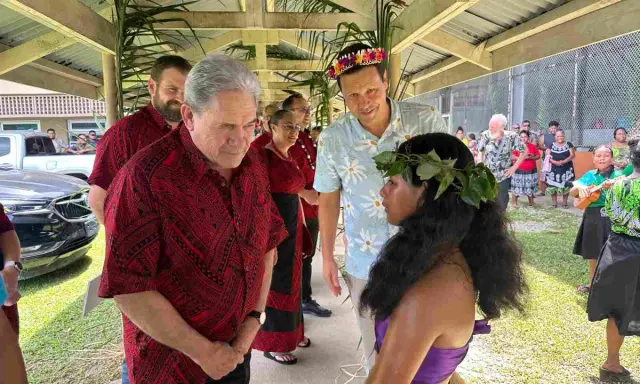It has taken almost five months for the Federated States of Micronesia (FSM) to receive funding support from the United States under the Compact of Free Association (COFA).
U.S President Joe signed into law the COFA agreements for FSM, Palau, and the Marshall Islands in March after a five-month delay.
The U.S Senate has provided US$7.1 billion in funding for the three nations over 20 years. The approval is part of a US$460b spending package.
While the three COFA nations have welcomed the funding, FSM’s Secretary for Education, Gardenia Aisek, says the government has until the end of September to spend US$106 million.
Aisek says many activities have been postponed and services to remote schools delayed including the meetings for educational leadership.
“I’ve been raising concerns since June, but of course, it’s not up to us. It’s the U.S government.”
Marshall Islands President Dr Hilda Heine has said that the funds represented a “very big step” for her country.
Heine, who hosted New Zealand’s Deputy Prime Minister Winston Peters in Majuro this week, told journalists it was a “good start”.
“We still have a number of issues that we’re trying to work out with our federal programme and services.
“We’re having to develop our annual implementation plan, as well as submitting our plan for next year.
“We were not sure when it would come, so, of course, we were a little bit nervous there, but so far things have worked out,” Heine said.
Vaovasamanaia Winston Peters at a school in the FSM capital on Pohnpei Island.
There was mounting pressure from the freely associated leaders, who had warned that China’s influence could grow in the islands if the US did not commit to its COFA promises.
Palau’s President Surangel Whipps said in a letter to the U.S Senate on 09 February that the U.S “plays in the hands” of China each day the compacts were not approved.
He warned that some Palauan leaders had opted to accept “seemingly attractive economic offers” from the Chinese.
FSM President Wesley Simina said the approval opened a new chapter and it was great news.
Simina said the path to Biden’s signing the agreement was longer than expected and challenging for the three nations.
FSM’s Departments of Health and Education is fully funded through the COFA and both are modelled after the American system, something Aisek said they hoped to change.
“We are applying for the transformation grant with GPE (Global Partnership for Education) to make changes to our education system,” Aisek said.
“So we are looking at integrating our culture and indigenous knowledge into our curriculum.
“We were overruled by different administrations, the U.S being the last one before we became independent.
“Our culture was never part of the learning, the curriculum. But now we’re realising that the younger generation does not know anything about our culture anymore.
“So we’re realising that we’re losing our culture, our values. We need to integrate it into the curriculum so that involves teaching it from early ECE on to high school.”
The Governor of Pohnpei State, Stevenson A Joseph, also recognised the need for FSM to take back control of its education system.
“Because of the funding, we are obligated to run our schools and health department in a certain way because of conditions attached to funding,” Joseph said.
“I don’t really believe in that. I think we as indigenous people need to run our education and health department in accordance to what we know and what is most fitting to our people.”
“Because COFA is treated as a grant, there are numerous requirements and compliance that come with that.
“And sometimes we have a hard time meeting those compliance issues and that stalls the funding… I guess on our part we need to shape up a bit.
“Many might say that these funds are being given to us out of the goodness of the hearts of those who provide it. But I don’t think that’s the case.
“We got these funds because of a very specific reason, and that is the defence of the United States.”
Peters, who is on a four-nation tour of the Pacific, arrived in the FSM on Tuesday and announced that New Zealand would support education within the North Pacific Region which included FSM.
Peters is the first New Zealand government official to hold bilateral talks with FSM’s President.
“Our engagements here in FSM are a vital opportunity to hear the perspectives of local political leaders, deepen our understanding of Micronesian priorities, and show our continued commitment to the region,” he said.














